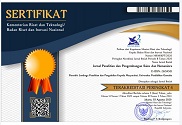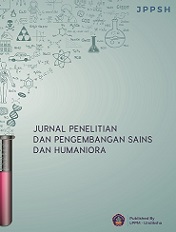Analisis Perancangan Sistem Informasi Administrasi Program Studi Pendidikan Teknologi Informasi dan Komunikasi
DOI:
https://doi.org/10.23887/jppsh.v2i1.14006Keywords:
information system design, database, data flow, interfaceAbstract
This study aims to determine the description of needs, data flow design, database design, and design of information systems administration interfaces PSTIK study program. The research used descriptive method with research form that is survey research. Research subjects are staff, leadership of study program and 60 students of study program. Data analysis technique is to describe the data collected. The results show that the administrative information system consists of seminars and theses, lecturer journals, incoming and outgoing letters, and reports that are tailored to functional requirements, interface needs, and performance needs. The flow of information system data consists of two entities ie students and staff. Students have 6 inflows and outflows, while staff has 10 inflows and outflows. The information system database consists of 16 entities with 8 interrelated relations. The information system interface is divided into two pages. The student page consists of 6 pages, while the staff page consists of three pages.Downloads
Published
2018-05-11
Issue
Section
Articles
License
Authors who publish with the Jurnal Penelitian dan Pengembangan Sains dan Humaniora agree to the following terms:
- Authors retain copyright and grant the journal the right of first publication with the work simultaneously licensed under a Creative Commons Attribution License (CC BY-SA 4.0) that allows others to share the work with an acknowledgment of the work's authorship and initial publication in this journal.
- Authors are able to enter into separate, additional contractual arrangements for the non-exclusive distribution of the journal's published version of the work (e.g., post it to an institutional repository or publish it in a book), with an acknowledgment of its initial publication in this journal.
- Authors are permitted and encouraged to post their work online (e.g., in institutional repositories or on their website) prior to and during the submission process, as it can lead to productive exchanges, as well as earlier and greater citation of published work. (See The Effect of Open Access)









